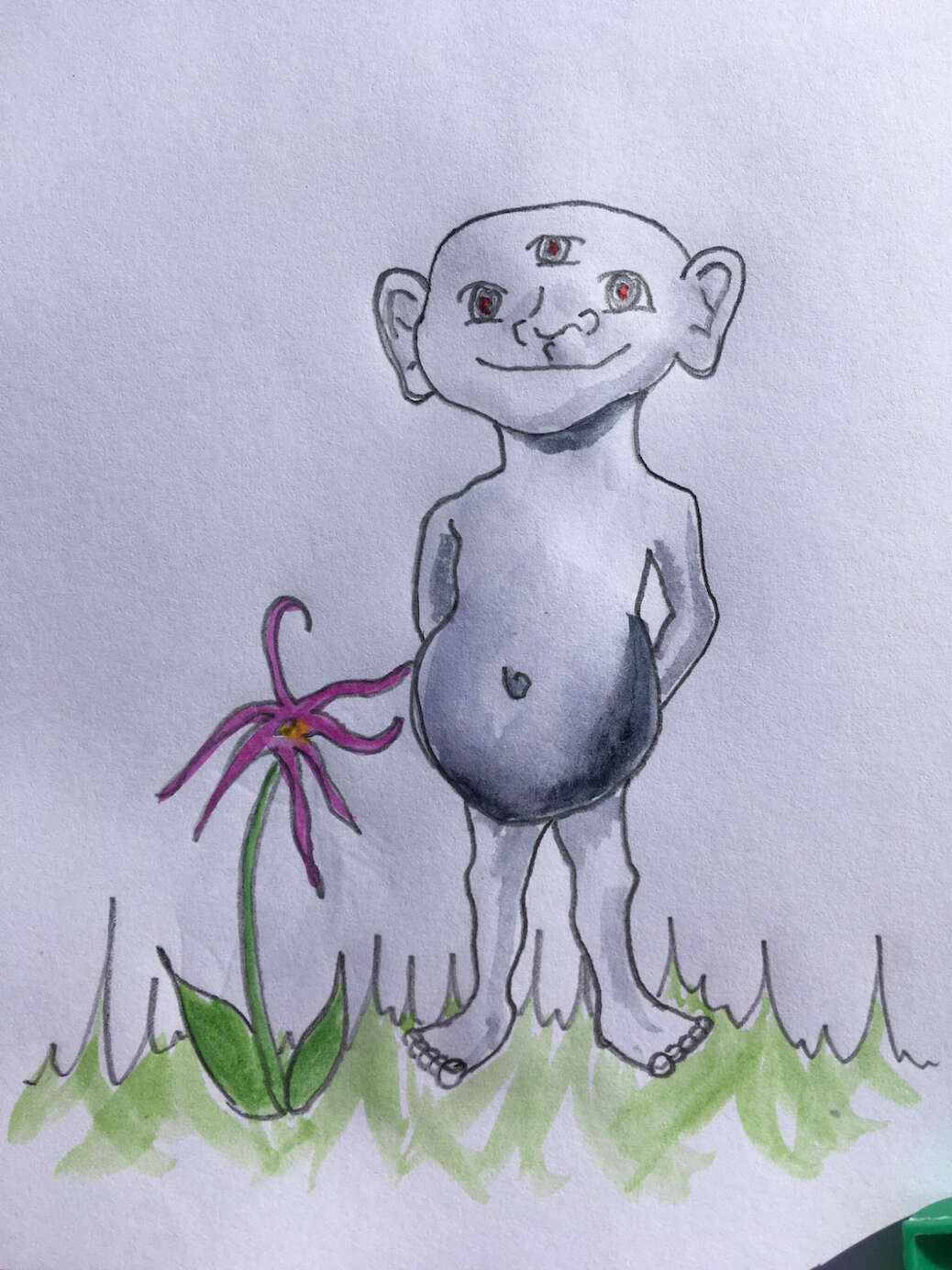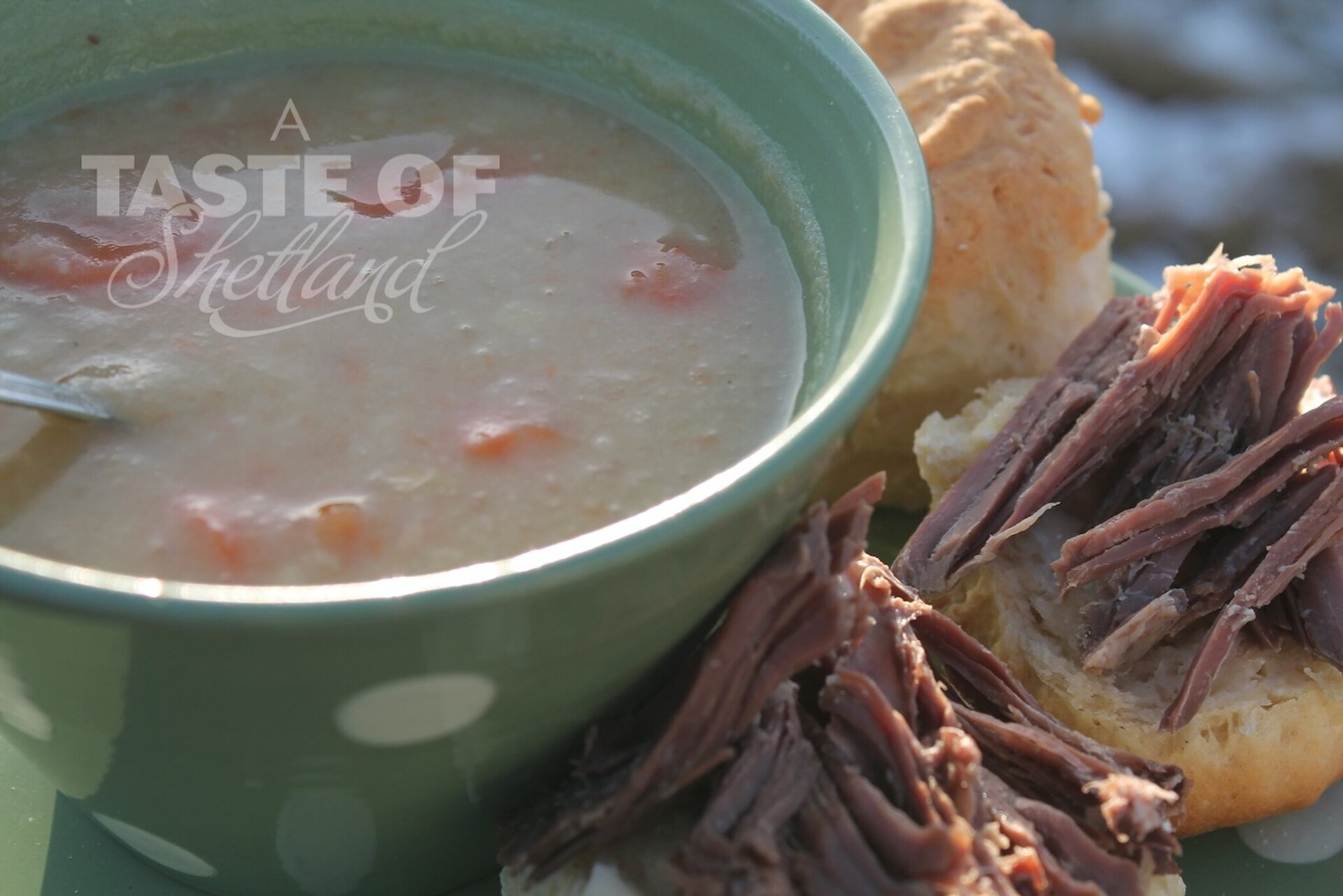A day later came Helya's nicht, when hot milk and meal were eaten, and this was followed by Tammasmas (a reference to St Thomas), which may have been a Christian adaptation of the earlier Tundiman's Nicht. No work was to be done after dusk on Tammasmas and breaking that rule was bound to bring bad luck: in this old rhyme, "dül" means sorrow:
The very babe unborn cries, "Oh dül, dül",
For the brakkin o" Tammasmas Nicht
Five nichts afore Yule.
On the Sunday before Yule Day, called Byaena's Day, supper consisted of half a cow's head, boiled; a sheep's head (or other animal's) would be used if no cow was available. Brose was made with bursteen (a kind of oatmeal) and fat from the cooking liquid. The skull was cleaned and a candle was stuck in the eye-socket, ready for Yule morning when it would be carried through the house.
On Yule Eve, even the poorest family would have meat of some kind. Everyone washed themselves from head to toe. Three blazing pieces of peat were dropped into the water when hands or feet were put in, otherwise the Trows would take the power from them. People put on clean (preferably, new) nightclothes, tidied the house and hid away anything that was "unkirsin" (unchristian). Locks were opened, a light was left on and an iron blade was left near the door, as Trows were apparently put off by iron.
Before dawn on Yule day, the candle in the cow's skull was lit and carried through the house and byre, where the cattle received a bit more food than usual. There was an early-morning dram, offered to young and old alike, followed by a candlelit breakfast around a big fire. Fiddlers would play "The Day Dawn".
Shetland's food and drink traditions
Yule cakes were made for everyone in the house. They were round, but had points around the outside and a hole in the middle, symbolising the sun. One account suggests that, as turkeys and geese were rare, wild ducks would be captured early in December and fattened, with cloves and "spice-grass" in the diet, producing a delicious flavour.
Salted or fresh mutton, beef or pork, along with salt or dried fish, would also feature through the Yule days. There would probably be a version of black pudding. Buns flavoured with spices and peel were made and imported treats such as oranges and dates became more widespread with the passage of time. A potato soup made with reestit mutton (mutton steeped in brine, then dried) was - and still is today - an essential part of the celebrations. Click here to get the recipe.





